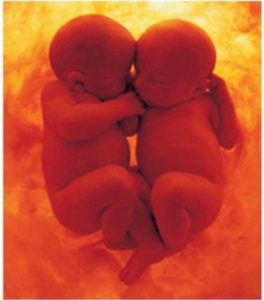Problem: Asa began his reign in about 911 b.c. The thirty-sixth year of his reign would have been about 876 or 875 b.c. However, Baasha began his reign in 909 and reigned until 886 b.c. when Elah his son became king (1 Kings 16:8). How could 2 Chronicles 16:1 say Baasha built Ramah in the thirty-sixth year of Asa, 11 years after Baasha’s death?\
2 Chronicles 14:9—How can this verse make reference to Zerah the Ethiopian, when there are no historical records of such a person?
Problem: When Asa was king in Judah, he was confronted by Zerah the Ethiopian who marshalled an army of 1 million men. However, there are no historical records of such a person. Is this an error?
2 Chronicles 13:4–22—Was Abijah a wicked or a righteous king?
Problem: According to 1 Kings 15:3, Abijah was a wicked king who “walked in all the sins of his father.” However, here in 2 Chronicles he is represented as giving a speech against idolatry and in defense of God’s appointed priests and temple in Jerusalem.
Two Babies
 In a mother’s womb were two babies. One asked the other: “Do you believe in life after delivery?”The other replied, “Why, of course. There has to be something after delivery. Maybe we are here to prepare ourselves for what we will be later.”
In a mother’s womb were two babies. One asked the other: “Do you believe in life after delivery?”The other replied, “Why, of course. There has to be something after delivery. Maybe we are here to prepare ourselves for what we will be later.”
“Nonsense,” said the first. “There is no life after delivery. What kind of life would that be?”
2 Chronicles 9:21—Did Solomon’s ships get gold from Tarshish or from Ophir?
Problem: Here the Chronicler affirms that Solomon’s ships “went to Tarshish” and brought back gold. However, in 1 Kings 9:28 it claims they “went to Ophir” and acquired gold.
2 Chronicles 7:12ff—Does God dwell in a chosen temple?
Problem: God told Solomon, “I have heard your prayer, and have chosen this place for Myself as a house of sacrifice” (v. 12), that “My name may be there forever” (v. 16). Yet, even Solomon in his dedicatory prayer acknowledged that God could not dwell in His temple, saying, “Behold, heaven and the heaven of heavens cannot contain You. How much less this temple which I have built!” (1 Kings 8:27). Other Scriptures likewise affirm that God does not “dwell in temples made with hands (Acts 17:24; cf. Isa. 66:1). Continue reading →
2 Chronicles 7:8–10—Why did Solomon fail to keep the fast as the law commanded?
Problem: Leviticus 16:30 commanded that a fast should be kept in connection with the Day of Atonement. However, Solomon did not observe a fast in connection with the Day of Atonement celebration that he held here in 2 Chronicles 7:8–10 (cf. also 1 Kings 8:65–66).
Daniel 12:2—Will the resurrection be partial or universal?
Problem: Some Scriptures leave the impression that only some will be raised from the dead. Daniel says “many of those who sleep in the dust of the earth shall awake” (Dan. 12:2). The NT often refers to resurrection “out from among” (Gk., ek) the dead, implying that not all will be raised (e.g., Luke 20:35; Acts 4:2; Rom. 1:4; 1 Cor. 15:12).
Daniel 10:1—Did Daniel continue until the first year of Cyrus or the third year of his reign?
Problem: Daniel 1:21 asserts that Daniel “continued until the first year of King Cyrus.” But Daniel 10:1 says that Daniel was still there until the “third year of Cyrus king of Persia.”
Daniel 5:31—How can the Book of Daniel be inspired if it makes reference to a man that modern scholarship says never existed?
Problem: According to Daniel 5:31, the kingdom of Belshazzar fell to the invading armies, and Darius the Mede took over as king. However, modern scholars have rejected the historical accuracy of the Book of Daniel. They argue that there never was a Darius the Mede, since there is no mention of such a person in ancient documents. Is this an error in Daniel’s historical account?
